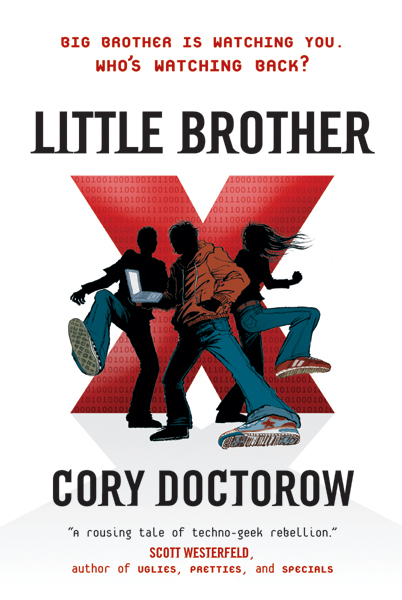 Last night for my book group, we read Headcrash by Bruce Bethke. To me, Headcrash is one of the funniest books ever written. It is raunchy, crass, and unhygienic. Just reading it made me develop a small rash. In 1995, Headcrash did something that almost no humorous books ever accomplish. It won an award, specifically, the Philip K. Dick award.
Last night for my book group, we read Headcrash by Bruce Bethke. To me, Headcrash is one of the funniest books ever written. It is raunchy, crass, and unhygienic. Just reading it made me develop a small rash. In 1995, Headcrash did something that almost no humorous books ever accomplish. It won an award, specifically, the Philip K. Dick award.
When the final vote was cast, we were rather split on our opinions, four likes to three dislikes. The amazing thing was that some of the likes and dislikes cited the same reasons for their respective opinions.
For instance, Headcrash is a great example of retro-futurism. It takes place in the Internet of today as all we World Wild Web pioneers thought the Internet would be when in grew up. (Instead of the haven for B2B networking and pictures of grandchildren that it has become.) In Headcrash, superusers live in a virtual world of fast cars and faster women that puts Grand Theft Auto to shame. To me, remembering what it was like to daydream about the future of the web in 1995, that’s really funny. To someone who didn’t get on the Internet until much later, that aspect was just a big question-mark.
 Some people say that humor is all about showing someone something they don’t expect with the right timing. Other people say that humor is always about class warfare. But, to me, humor is about context. It’s a lot easier to enjoy the tongue-in-cheek comments in Cory Doctorow’s Little Brother if you remember being a fifteen year old computer enthusiast than if you are in charge of teaching immature young adults. Just as you are more likely to enjoy Headcrash if you’ve ever hooked up with a person on a MUD without knowing for sure if they were a man or a woman. As the Bard said, “I’m from the Internet. Such things happen.”
Some people say that humor is all about showing someone something they don’t expect with the right timing. Other people say that humor is always about class warfare. But, to me, humor is about context. It’s a lot easier to enjoy the tongue-in-cheek comments in Cory Doctorow’s Little Brother if you remember being a fifteen year old computer enthusiast than if you are in charge of teaching immature young adults. Just as you are more likely to enjoy Headcrash if you’ve ever hooked up with a person on a MUD without knowing for sure if they were a man or a woman. As the Bard said, “I’m from the Internet. Such things happen.”
